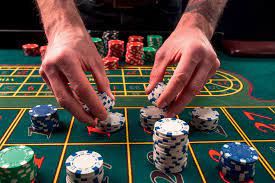Did you ever feel like losing your mood when you were playing games? Rage and inclination can be fatal, as even professionals make foolish moves and lose cheap points.
Tilt can be managed well with an eye to detect the early signs and acting to prevent it from progressing by monitoring thoughts, setting boundaries and seeking help.
Losing control
The first symptom of tilt is losing emotional intelligence. This could appear as frustration, anger or impatience and lead to irrational choices. When you realise very early on that your mood has changed, you can work to rebalance it by resting – meditating or taking a walk will refresh you and maybe stop the feeling from escalating.
The other classic indication of tilt is spending too much. When players lose they get mad and angry and end up making rash moves that soon deplete their bankroll. This can be avoided by establishing and following a budget.
Tilting leads to self-doubt and sub-par performance in competition. But tilt is game, and with good play it’s tamable. There needs to be a good attitude and community to cope with tilt’s damage.
Spending too much money
Too many bucks can be an indicator that the player is financially stressed and threatens to destroy their career. Mindfulness practices and a focus on self-control can also be used to train players in emotional regulation so negative feelings don’t turn into irrational thoughts or impulses to act out of character.
Simplicity also leads people to blow their budgets when they buy clothes, gear, housing, holidays and status enhancing gadgets such as expensive games or gear.
Less is more, and people can take back their money. If you establish a budget with constraints to how much one can afford without breaking the bank, it’s easier to stay on track and not burn the candle at both ends. It can be done by players using tracking apps and money calculators. Or, trying a no-buy challenge for an hour or two – week or month – can temporarily nix impulse buys.
Intense reaction to failure
Tip isn’t just a bad feeling, but can be a very serious loss of money for players. A person with tilt will try to make up for losses by taking more risks, and will spiral down into debt and more losses.
Tilt causes a player to react in quick succession and lose track of his strategy which is especially destructive for novice players.
Some players will start to believe the game is rigged and it can become a bankroll sink fast. That is why heart-rate & breathing rates are critical early warning signs to look for and taking regular breaks and anger management techniques that keep players calm and focused is important.
Irrational thinking
The tilted person can get so hung up on the idea that he should do something and forget to look for facts to support it. This delusion can lead to cognitive biases like confirmation bias (thinking that information confirms existing beliefs) and availability bias (looking to information that’s readily available).
Tilting can also occur via victim mentality – often caused by the misbehaviour of players or feeling like a game is fixed and as such, too spendy, and therefore more susceptible to other players piggybacking on them.
Regular practise of breathing techniques, mindfulness and relaxation can allow individuals to see potential tilt before it’s present, and regulate negative feelings, which in turn helps with high-stress decisions and the avoidance of costly, unreasonable choices. And there is a psychological validation in asking for help from friends who have been through bad tilts themselves.





